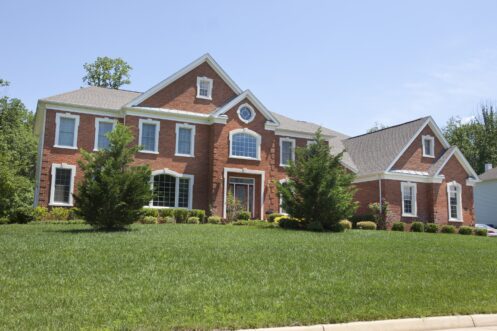
Owning a home in Chesapeake, Virginia puts you in the nation’s 11th largest city. Chesapeake is the sister city of Joinville, Brazil, and it’s ranked by the Federal Bureau of Investigation (FBI) as one of the safest places to live. There’s a bustling nightlife, a thriving arts scene, and ample ways to sate your cravings. With its expansive sampling of global cuisine, Chesapeake is a foodie’s delight. However, of all the many things that it’s known for, nothing is quite so impressive as its thermal springs and deepwater canals. This is especially true if you’re looking for a way to heat and cool your home without spending a veritable fortune.
About Chesapeake’s Deepwater Canals
For centuries, Virginia’s deepwater canals have drawn people to the state for relaxation, recreation, and healing. Chesapeake, VA spans 350 square miles, and it has more deepwater canals than any other city. In fact, its canals host over 10,000 boats annually as avid anglers and pleasure seekers use them to make their way across the Atlantic Intracoastal Waterway.
One of Chesapeake’s most famous deepwater canals is The Great Dismal Swamp. It’s rumored that Edgar Allan Poe penned his famous poem “The Raven” while traversing this canal. It’s also believed to have been a north-to-south passageway for the Underground Railroad by which runaway slaves went back to free others. The waters in Chesapeake are steeped in history. This is also true of the underground waters that are fed by these canals and the many subterranean thermal springs throughout the region.
The Thermal Springs of Virginia
Virginia is home to a massive number of subterranean springs. These thermal springs are most abundant in Alleghany and Bath counties, but they have attracted people to all parts of the state since the 1760s when they were designated for public use. Their source is underground water that’s heated deep within the earth’s crust. This water travels rapidly towards the earth’s due to pressure, gases, and the natural movement of fractures and faults. As such, although it loses a bit of heat along the way, it’s rife with thermal energy when it arrives.
What Does This Mean for Homeowners?
Heat pumps consistently rank among the most efficient options in home heating and cooling. This is just as true of ducted heat pumps as it is of ductless mini-split heat pumps which can have efficiency levels as high as 300%. In summer, heat pumps function just like air conditioners do. They harness warm air from the interiors of buildings and then deposit in outside. This method of cooling is known as heat transfer and apart from the electricity that’s used to support the basic functions of heat pumps, no other fuel is needed.
In winter, heat pumps operate in reverse. Rather than putting warm indoor air out, they transfer heat in. Some heat pumps extract heat from the outdoor air. Others extract it from water or the ground. In Chesapeake, homeowners have an unlimited supply of underground heat due to the warm, thermal springs that are networked just beneath the land.
Just How Efficient Is Geothermal Heating and Cooling?
Geothermal heating and cooling is incredibly efficient. It takes just a single kilowatt-hour of energy for a geothermal heat pump to produce 12,000 BTUs of heating or cooling power. This is less than half of the energy needed by a standard, air source heat pump. Best of all, unlike air source heat pumps that are reliant upon specific weather conditions to function optimally, geothermal heat pumps have access to a relatively consistent supply of steady heat. Even when the outside temperatures fall below freezing in Chesapeake, the temperature of underground thermal springs does not change much at all. Compare this to a standard air source heat pump that progressively loses efficiency as soon as temperatures drop below 30 degrees Fahrenheit.
Geothermal Energy Can Run Hot Water Heaters Too
Not only do the thermal springs in Chesapeake provide ample power for whole-house climate control systems, but they’re also a reliable source of energy for water heaters too. With a geothermal hot water heater and a ducted or ductless heat pump, you can sidestep the high costs of running oil and gas-fired appliances. You can also avoid the risk of carbon monoxide (CO) exposure and exposure to other harmful exhaust gases.
Geothermal energy is clean, green, and completely sustainable. Residents of Chesapeake have a virtually unlimited source of underground thermal energy that can effectively heat and cool their homes and meet their hot water needs.
We’re proud to be a trusted geothermal systems supplier in Chesapeake, Virginia. We offer heater, air conditioner, heat pump, and ductless installation, maintenance, and repair services. We also offer indoor air quality solutions, ductwork, and radiant heating. To find out more about our geothermal services or to schedule an appointment, contact Simmons Heating & Cooling now!
